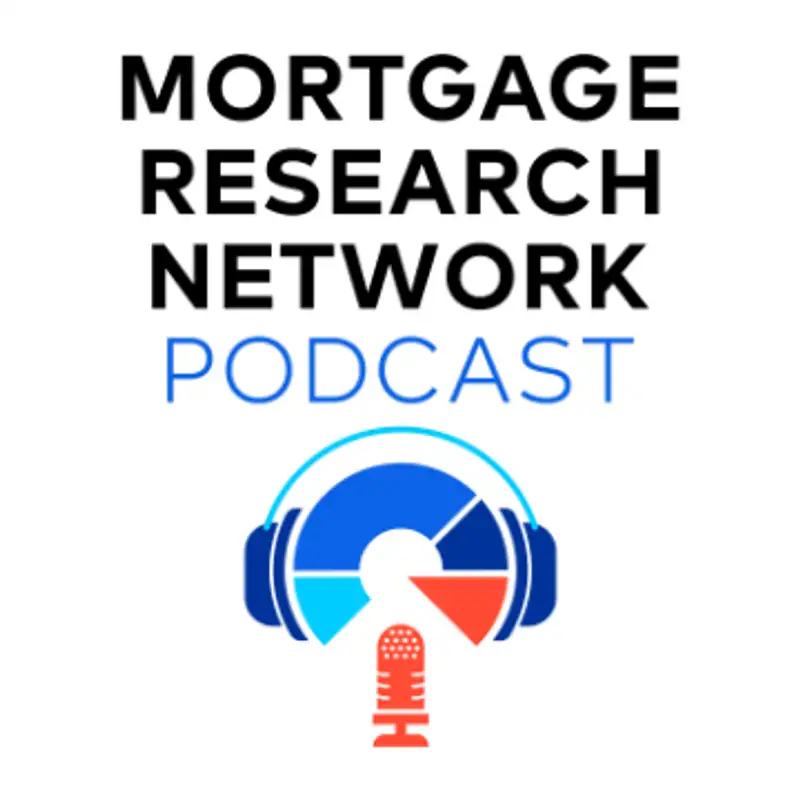Payment Shock: What It Is—and How to Beat It
Welcome to the Mortgage Research Network Podcast. Just a note that this podcast audio is AI-generated but based on content that was produced by people. And your hosts, Tim and Craig, are real. Without further ado, let's get into today's topic.
I'm your host, Tim Lucas, editor of MortgageResearch.com and a former mortgage professional, and with me is Craig Berry, a mortgage originator with 25 years experience.
Hi everyone. Great to be here.
Today we're talking about payment shock. This is an actual term thrown around by lenders, so we thought we break down what it is and how lenders look at it. lenders have a specific threshold for payment shock. It's when the new mortgage payment will be either 5% higher or $100 more than your current housing payment, whichever is less. So if you're paying $1,200 in rent, anything above $1,260 technically qualifies.
Hmm... that seems like an incredibly low threshold given today's housing market.
Exactly right - and here's the fascinating part: the shock itself isn't automatically a deal-breaker. It's more like a yellow flag that lenders watch carefully, especially when combined with other factors in your application.
What kind of factors make payment shock more concerning?
Picture this scenario: you've got a buyer pushing their debt-to-income ratio to a relatively high 45%. They're also barely scraping together a 3.5% down payment for an FHA loan, and they'll have no savings left after closing. Now add an $800 monthly payment increase - that's when payment shock becomes a real problem.
So it's really about the complete financial picture, not just the payment increase itself.
Right, and let me share a real-world example that PERFECTLY illustrates this. A loan officer recently estimated homeowners insurance at $2,000 annually. pretty standard. But the actual policy came back at $3,200 because of some speeding tickets on the spouse's driving record.
Oh wow - that's the kind of detail that could really blindside someone. How much did that affect the monthly payment?
That single surprise added another $100 to the monthly payment - which was considered payment shock all by itself. And here's what's wild - there was no way for the loan officer to know about those speeding tickets during initial estimates.
So what can people do to prepare for these kinds of surprises?
Well, I love this strategy called "payment practice" - before applying for a mortgage, if you know your payment will likely be $800 more than current rent, start living as if you're already making that higher payment. Put the difference in savings every month.
That's brilliant - you're essentially test-driving the new budget while building a safety net.
And speaking of safety nets, there are several creative solutions if you find yourself struggling after buying. Some people rent out part of their homes. but here's the key: start those plans BEFORE falling behind on payments.
Let's talk about the long-term picture - does payment shock eventually ease up?
Here's the encouraging part - while that initial shock can be tough, mortgage payments typically become more manageable as your income grows. Plus, inflation works in your favor - that fixed payment becomes relatively smaller compared to rising costs everywhere else.
Unlike rent, which seems to increase every year like clockwork.
Exactly - your principal and interest payment stays locked in for the entire loan term. Only property taxes and insurance can vary. And get this - within 5 to 10 years, that seemingly daunting mortgage payment often looks like a bargain compared to market rents.
That really changes the perspective on payment shock - it's more of a temporary hurdle than a permanent burden.
And here's something most people don't realize - some buyers actually experience what lenders call NEGATIVE payment shock, where their new mortgage payment is less than their current rent. Lenders absolutely love seeing this because it strengthens the loan application considerably.
What are the most effective strategies for minimizing payment shock from the start?
Beyond making a larger down payment, you can look for homes in areas with lower property taxes, avoid expensive HOA fees, and really shop around for insurance rates. Some buyers even negotiate with sellers to cover closing costs, freeing up more cash for the down payment.
That's quite a comprehensive approach to managing the situation.
The bottom line is this: payment shock doesn't have to derail your homebuying dreams. It's about understanding what you're getting into, being brutally honest about your budget, and having a solid plan. Remember, managing your mortgage payment successfully builds long-term wealth.
That's about all the time we have for this topic, but we go into even more detail on the site. To learn more, go to Mortgage research.com and type payment shock in the search bar. We'll see you next time on the Mortgage Research Network Podcast.
